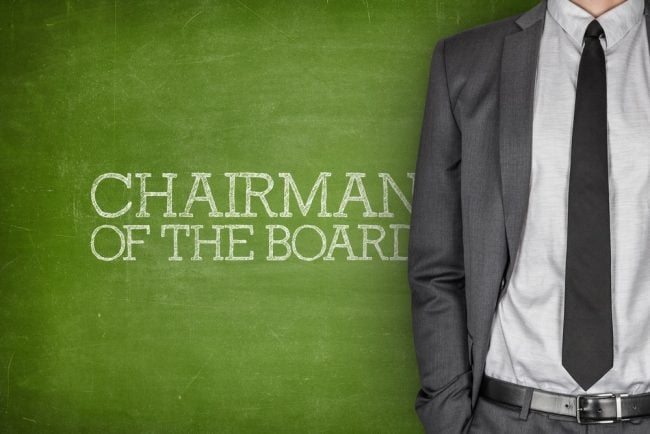A trend has emerged over the last decade of banking executivesincreasingly joining the credit union ranks. Along with that trendhas come a debate over whether more former bank executives incredit unions is good or bad. In my opinion, it's neither one ofthese – it just is.
|The motivations of the traditional credit union leader tend tobe outward centric. They have a reputation for wanting to do what'sright for members more so than their for-profit peers. Credit unionveterans Stan Hollen, CO-OP Financial Services President/CEO, andJim Blaine, SECU President/CEO, tossed out names of some executiveswho made a successful transition from big banks to credit unions,including First Technology Federal Credit Union president/CEO GregMitchell, BECU president/CEO Benson Porter and Alliant Credit Unionpresident/CEO Dave Mooney of Chicago. (Outsiders can also make theswitch – see Outsider CEO Leads Heartland)
|It all comes down to motivation. “Do they have that peoplehelping people [philosophy] in their heart?” asked Point BreezeCredit Union president/CEO Bernie McLaughlin, who successfullytransitioned from banks to the credit union career market. PointBreeze experienced 13% loan growth last year while maintainingdelinquencies of less than 1% and net worth of more than 13%. Plus,you can't help but immediately recognize McLaughlin's innate creditunion-ness.
|“If you’re an individual going from a bank to a credit union,it's not a job change. It's a mindset change,” McLaughlinexplained. For example, when he walks into the boardroom now, theboard asks about what's good for the members rather than justfinancial gains. Of course those are important, too, but it's aboutwhat those profits can do for the members, not how they’ll linestockholders’ pockets.
|Large bank executives can be more specialized than credit unionexecutives, however, Mitchell, Stankovic & Associates CEO SueMitchell said. Bankers tend to be more specialized in a particulardiscipline, such as lending or law. They also tend to be distancedfrom the customer, she added.
|Breadth of experience is key for credit unions, which often haveexecutives who cover multiple verticals, and it's also critical forfuture CEOs, who need a broader view of the business, Hollen added.Rotating oversight responsibilities is critical to developingwell-rounded leaders who can succeed in credit unions. He shouldknow: Hollen has developed several credit union leaders (see page3) during his decades-long credit union tenure, culminating withhis retirement this summer.
|Mitchell acknowledged bankers can contribute a certain level ofprofessionalism and an objective business perspective that'sdifferent from what you get at a credit union due to the marketresponsibilities and differing regulations. Community bankers inparticular have experience contributing to local economic growth asbusiness lenders, and recognize the importance of a commercial loanto a small business and the community as a whole.
||McLaughlin explained when he crossed over from the dark side,the credit union community didn't quite trust him and his bankerbuddies shunned him for a period of time. He did, however, win overthe credit union community, and he now enjoys the freedom of doingwhat's right for members.
|“I’ve never come across anyone who said they wouldn't hire abanker; in fact I’ve heard the opposite,” McLaughlin said. “Wecould use that mentality with the whole fiscal side of thehouse.”
|Also, as Mitchell mentioned, a banking background can be a boonin regard to strategic planning. However, McLaughlin added whilecredit unions do not lack that ability, it's good to considerbankers as an option.
|Hollen remarked, “I’m not worried about replacing currentleaders with credit union people. We don't need [bankers], butthere have been some very good people who have come in and reallyadopted the credit union philosophy. Sometimes it takes a littlelonger, but they eventually do get it. They come around.”
|McLaughlin, who has 36 years of experience in financialinstitutions including 20 in large and small banks, said hebelieves his marketing background gave him a broader view of theinstitution and helped him capture his credit union CEOpositions.
|Bankers should use McLaughlin's self-coined RAIN method indeciding whether credit unions are really their calling: Review thesituation, assess the good and bad, implement changes slowly andnegotiate. The initial negotiation, he pointed out, is withyourself on issues such as compensation. Yes, the packages are lesslucrative, but there's a huge upside: Greater job security, as youwon't be waiting to be squeezed out by yet another bank merger.
|Mitchell said asking complex interview questions can help weedout candidates who won't easily make the bank to credit uniontransition. Ask about how they conduct performance reviews orhandle ethical questions.
|Finally, credit unions can do more to continue cultivatingfuture industry leaders as people like Hollen retire. First, Hollenadvised, rotate certain functions at the credit union whenpossible. Also, coach on networking skills, provide networkingopportunities and encourage professional development, herecommended.
|The credit union culture is shifting, and bringing in bankersmay be a part of it. But when it nets positive results, change isnot a bad thing.
Complete your profile to continue reading and get FREE access to CUTimes.com, part of your ALM digital membership.
Your access to unlimited CUTimes.com content isn’t changing.
Once you are an ALM digital member, you’ll receive:
- Critical CUTimes.com information including comprehensive product and service provider listings via the Marketplace Directory, CU Careers, resources from industry leaders, webcasts, and breaking news, analysis and more with our informative Newsletters.
- Exclusive discounts on ALM and CU Times events.
- Access to other award-winning ALM websites including Law.com and GlobeSt.com.
Already have an account? Sign In
© 2024 ALM Global, LLC, All Rights Reserved. Request academic re-use from www.copyright.com. All other uses, submit a request to [email protected]. For more information visit Asset & Logo Licensing.









